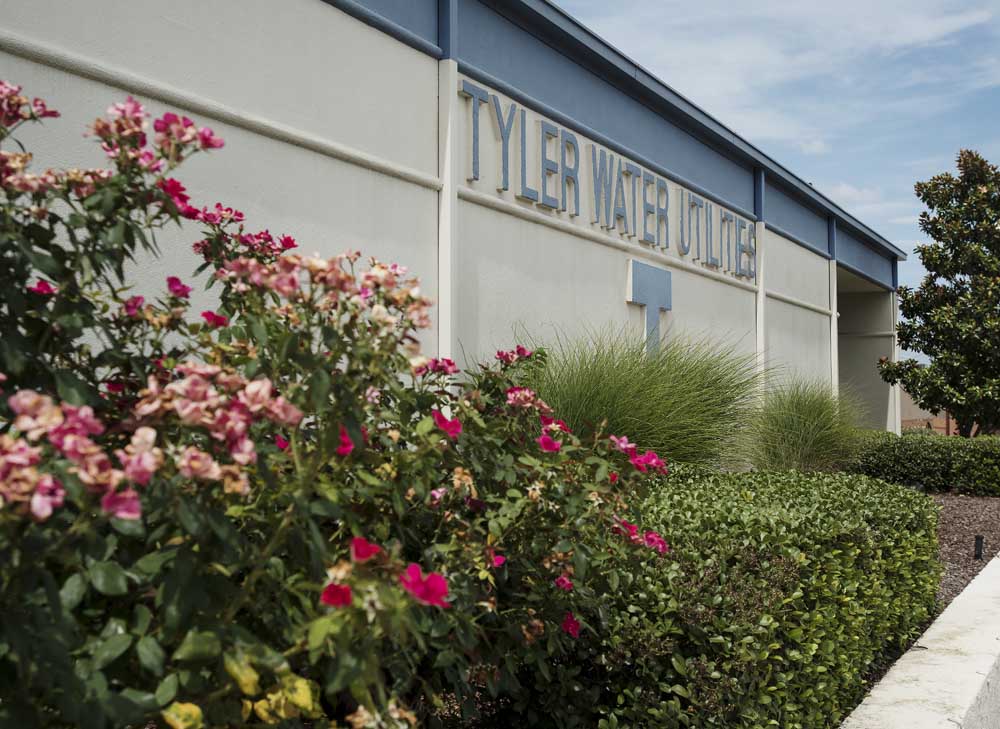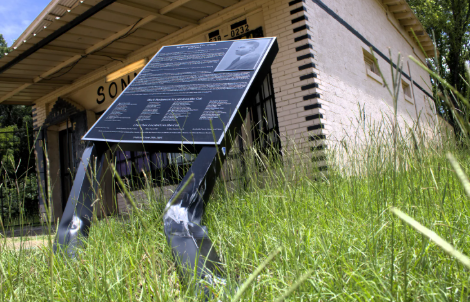Testing shows safe levels of cancer-causing chemical in Tyler water
Published 5:40 am Monday, November 13, 2023

- City of Tyler Water Utilities is seen on West Locust Street. (Tyler Morning Telegraph/File)
Tyler Water Utilities customers can drink easier after recent test results show the system has a safe level of one hazardous chemical.
In 2022, the Environmental Protection Agency mandated that more than 4,000 large water utilities across the country test for a list of synthetic chemicals known to cause cancer and other health issues.
Trending
Those family of hazardous compounds are called PFAS — short for per-and polyfluoroalkyl substances — and commonly are referred to as “forever chemicals” because the body has no way to break them down. PFAS have been found in nearly half the nation’s water supplies and in the blood of 98% of Americans, according to the Centers for Disease Control and Prevention.
The quarterly tests, which began in Tyler in January and will continue through the end of the year, have detected only one of 29 separate PFAS chemicals highlighted by the EPA.
Within that list, the federal agency is expected to regulate six of the most common compounds, meaning water utilities with demonstrated contamination will have to install expensive filtration systems to maintain compliance.
Tyler’s first two rounds of testing revealed no detections of those six PFAS. Perfluoropentanoic Acid (PFPeA), a substance known to cause cancer, endocrine disruption and liver damage, was found present in the city’s water, but at levels so low that they were barely detectable.
“Of the six chemicals the EPA is looking to regulate, none were detected in Tyler water,” according to the city. “Out of all the tests completed, only one test came back positive but it was of a chemical not expected to be regulated and the results were below the threshold the EPA has proposed to set for all other chemicals as a maximum contaminant level.”
Samples were collected from two surface water treatment plants pulling from Lake Tyler and Lake Palestine. Collection and testing of the samples was performed by LCRA Environmental Laboratory Services in Austin with results returned to Tyler Water Utilities and then sent to the EPA.
Trending
“We take so many tests every single day in the city of Tyler, but this was different because we didn’t know what to expect,” said Kate Dietz, director of Tyler Water Utilities.
“I don’t want to say I was worried, but I was really interested to see the results and hoping they would come out like they did,” Dietz said. “The results we have so far are very, very encouraging.”
Dietz said the city is investing in a separate round of PFAS testing independent from those the EPA requested.
Whereas the EPA samples were taken after reservoir water was treated, the additional city-led testing will target the raw water at Lake Palestine and Lake Tyler.
“We want to get as much information as we possibly can to protect public health, and so we’re ready for what the future holds as far as these regulations are concerned,” Dietz said.
A map of Tyler Water Utilities service area can be found here.






